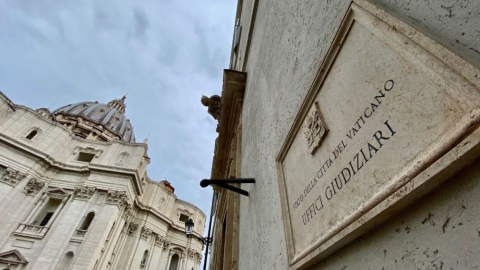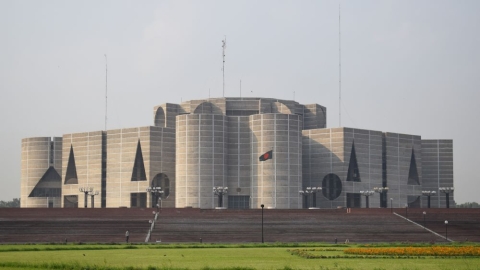Russia: Catholic Bishops of Russia Reject Fiducia Supplicans

Conférence épiscopale de Russie
On February 28-29, 2024, the Conference of Catholic Bishops of Russia (CCER) held its LIX plenary meeting in Listvyanka, near Irkoustk – a Russian city located in the southern part of central Siberia. Present were the bishops of the four Latin Catholic dioceses of Russia and an auxiliary bishop.
The four Latin Catholic dioceses are the Archdiocese of Our Lady of Moscow, the Diocese of Saint Joseph in Irkutsk, the Diocese of the Transfiguration in Novosibirsk, the Diocese of Saint Clement in Saratov. There are also Catholics attached to the Russian Greek Catholic Church.
In the report signed by the president of the Episcopal Conference, Paul Pezzi, Archbishop of Moscow, a long paragraph is devoted to the declaration Fiducia supplicans. The bishops note the “misunderstandings that have arisen regarding” this declaration.
This is why the CCER “considered it necessary to emphasize that Catholic teaching on the family and marriage remains unchanged” And to explain that “only a man and a woman united in marriage form, with their children, a family.”
Always for the same reason “the Church considers that it has a particular responsibility to support and strengthen marriage and the family as a privileged community and primary cell of society (see Catechism of the Catholic Church, nn. 2002-2009).” And she “blesses and surrounds marital unions and families with pastoral care.”
Continuing with its explanation, the letter notes that “the Church has not and does not refuse intercessory prayer to people in various situations”; this prayer asks for “the grace of God necessary for conversion, for the strengthening of good intentions, for the beginning or continuation of the path of justice.”
Finally comes the conclusion: “In order to avoid temptations and confusion, the CCER draws attention to the fact that the blessing of any type of couples who live in irregular relationships – cohabitation, bigamy, homosexuality – is unacceptable.”
Related Article:
It was not difficult to predict this refusal on the part of the Catholic bishops of Russia, for at least two reasons. The first: the legislation put in place in the country against the LGBT movement, in particular by Putin's government, and the fairly significant rejection of the movement by civil society. The second reason is the condemnation of Fiducia supplicans by the Russian Orthodox.
It is quite obvious that, for Catholics, they could not do less than reject the document or face the penalty of being singled out and seeing the faithful protest in a country where Catholicism is very much a minority. The bishops concluded by asking the faithful to remember their civic duty on the eve of the presidential elections in the Russian Federation.
(Source : catholic-russia.ru – FSSPX.Actualités)
Illustration : Conférence des évêques catholiques de Russie





